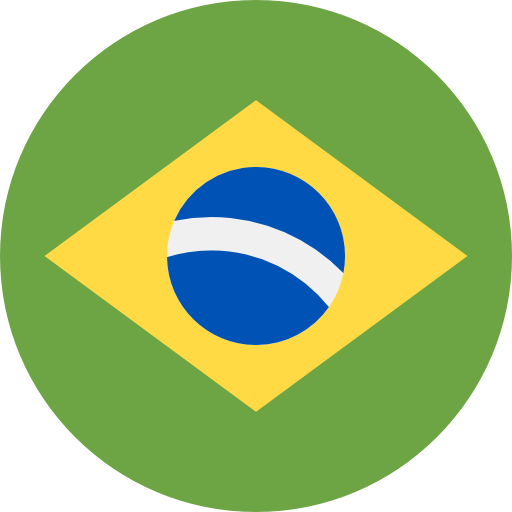Se você recebe benefícios federais no Canadá, é fundamental conhecer os detalhes sobre cada programa, como elegibilidade, valores e datas de pagamento. Neste guia, explicamos os principais benefícios, ajudamos a entender quem pode recebê-los e informamos quando os pagamentos serão feitos em 2025.
Canada Pension Plan (CPP)
O que é o Canada Pension Plan (CPP)?
O CPP é um programa de previdência pública do governo canadense. Ele fornece benefícios mensais para aposentados, pessoas com invalidez e dependentes de beneficiários falecidos.
Quem é elegível?
Indivíduos com mais de 60 anos que tenham contribuído para o CPP.
Pessoas com invalidez severa que não conseguem trabalhar.
Filhos de beneficiários do CPP falecidos ou incapacitados.
Valores dos Benefícios
Os valores variam conforme as contribuições ao longo dos anos. Em 2024, o pagamento médio mensal para aposentados foi de cerca de CAD 758 com um máximo de CAD 1.364,60.
Datas de Pagamento em 2025
29 de janeiro
26 de fevereiro
27 de março
28 de abril
28 de maio
26 de junho
29 de julho
27 de agosto
25 de setembro
29 de outubro
26 de novembro
22 de dezembro
Old Age Security (OAS)
O que é o Old Age Security (OAS)?
O OAS é um benefício pago a idosos canadenses com 65 anos ou mais, independentemente do histórico de contribuição ao CPP.
Quem é elegível?
Pessoas com 65 anos ou mais que tenham residido no Canadá por pelo menos 10 anos após os 18 anos.
Valores dos Benefícios
O máximo mensal do OAS em 2024 foi CAD 713.34, com possíveis acréscimos pelo Guaranteed Income Supplement (GIS).
Datas de Pagamento em 2025
(Seguem as mesmas datas do CPP)
Goods and Services Tax/Harmonized Sales Tax (GST/HST) Credit
O que é o GST/HST Credit?
Um crédito fiscal para canadenses de baixa renda, ajudando a compensar os impostos pagos sobre bens e serviços.
Quem é elegível?
Residentes no Canadá com baixa renda.
Pessoas que preencheram a declaração de imposto de renda.
Valores dos Benefícios
Depende da renda familiar. O valor máximo em 2024 foi CAD 496 para solteiros e CAD 650 para casais.
Datas de Pagamento em 2025
5 de janeiro
5 de abril
5 de julho
5 de outubro
Canada Child Benefit (CCB)
O que é o Canada Child Benefit (CCB)?
Um benefício mensal não tributável pago a famílias para ajudar com o custo de criação de crianças.
Quem é elegível?
Responsáveis por crianças menores de 18 anos.
Valores dos Benefícios
Depende da renda familiar. Em 2024, o valor máximo foi CAD 7.437 por criança menor de 6 anos e CAD 6.275 por criança de 6 a 17 anos.
Datas de Pagamento em 2025
19 de janeiro
20 de fevereiro
20 de março
19 de abril
20 de maio
20 de junho
19 de julho
20 de agosto
20 de setembro
18 de outubro
20 de novembro
13 de dezembro
Ontario Trillium Benefit (OTB)
O que é o Ontario Trillium Benefit (OTB)?
Um benefício para residentes de Ontário, incluindo créditos para energia e imposto sobre vendas.
Quem é elegível?
Residentes de Ontário que se qualificam para os créditos tributários provinciais.
Valores dos Benefícios
Depende da renda familiar e situação de moradia.
Datas de Pagamento em 2025
10 de janeiro
10 de fevereiro
10 de março
10 de abril
10 de maio
10 de junho
10 de julho
10 de agosto
10 de setembro
10 de outubro
10 de novembro
10 de dezembro
Advanced Canada Workers Benefit (ACWB)
O que é o Advanced Canada Workers Benefit (ACWB)?
O ACWB é um pagamento antecipado do Canada Workers Benefit, um benefício reembolsável para trabalhadores de baixa renda, destinado a fornecer suporte financeiro ao longo do ano.
Quem é elegível?
Trabalhadores de baixa renda que atendem aos critérios estabelecidos pelo governo federal.
Pessoas que apresentaram a declaração de imposto de renda e se qualificam para o Canada Workers Benefit.
Valores dos Benefícios
O valor varia de acordo com a renda familiar e a situação tributária do beneficiário.
Datas de Pagamento em 2025
10 de janeiro
11 de julho
10 de outubro
Canada Carbon Rebate
O que é o Canada Carbon Rebate?
Anteriormente conhecido como Climate Action Incentive Payment, este benefício ajuda a compensar o custo do imposto sobre carbono.
Quem é elegível?
Residentes em províncias participantes do programa de precificação do carbono.
Valores dos Benefícios
Os valores variam por província.
Datas de Pagamento em 2025
15 de janeiro
15 de abril
15 de julho
15 de outubro
Alberta Child and Family Benefit (ACFB)
O que é o Alberta Child and Family Benefit (ACFB)?
O ACFB é um programa de assistência financeira para famílias de baixa renda com crianças na província de Alberta. O benefício combina apoio financeiro ao longo do ano para ajudar com os custos de criação de filhos.
Quem é elegível?
Famílias residentes em Alberta com crianças menores de 18 anos.
Renda familiar dentro dos limites estabelecidos pelo governo da província.
Valores dos Benefícios
Os valores variam com base na renda familiar e no número de crianças na casa.
Datas de Pagamento em 2025
27 de fevereiro
27 de maio
27 de agosto
27 de novembro
Veteran Disability Pension
O que é o Veteran Disability Pension?
A Veteran Disability Pension é um benefício mensal pago a veteranos que sofreram ferimentos ou doenças relacionadas ao serviço militar. Este benefício tem o objetivo de fornecer suporte financeiro para aqueles que enfrentam desafios de saúde devido ao seu serviço.
Quem é elegível?
Veteranos que tenham uma condição de saúde comprovadamente relacionada ao serviço militar.
Membros da família de veteranos falecidos podem ser elegíveis para determinados pagamentos.
Valores dos Benefícios
Os valores variam de acordo com o grau de deficiência e a avaliação médica do veterano.
Datas de Pagamento em 2025
30 de janeiro
27 de fevereiro
28 de março
29 de abril
29 de maio
27 de junho
30 de julho
28 de agosto
26 de setembro
30 de outubro
27 de novembro
23 de dezembro
Conclusão
Garantir que você esteja informado sobre os benefícios disponíveis e suas respectivas datas de pagamento é essencial para um planejamento financeiro eficiente. Saber quando e quanto você pode receber permite que você organize melhor suas finanças, evite surpresas e aproveite ao máximo os programas governamentais.
Para quem está organizando sua vida financeira em 2025, vale a pena conferir o nosso guia completo da temporada de impostos no Canadá, com todas as datas, obrigações e estratégias que podem te ajudar a pagar menos e planejar melhor.
Se você deseja otimizar sua situação fiscal, garantir que está aproveitando todos os créditos e benefícios disponíveis, ou precisa de suporte na sua declaração de impostos, a MB Tax Solutions pode te ajudar. Nossa equipe de especialistas está pronta para oferecer um atendimento personalizado, garantindo que você maximize seus benefícios e reduza sua carga tributária de maneira legal e eficiente.
Entre em contato agora mesmo! Acesse MB Tax Solutions e descubra como podemos simplificar sua vida financeira no Canadá.
Quer saber como alinhar seus benefícios com o seu planejamento financeiro? Veja também como investir com sabedoria e reduzir seus impostos de forma prática e estratégica.
Perguntas Frequentes (FAQ)
Os pagamentos do ACWB para 2025 serão feitos nas seguintes datas:
10 de janeiro
11 de julho
10 de outubro
Trabalhadores de baixa renda que atendem aos critérios do governo federal e que apresentaram a declaração de imposto de renda.
Os pagamentos do ACFB para 2025 ocorrerão nas seguintes datas:
27 de fevereiro
27 de maio
27 de agosto
27 de novembro
Famílias residentes em Alberta com crianças menores de 18 anos e que se encaixam nos critérios de renda estabelecidos pelo governo provincial.
Os pagamentos da Veteran Disability Pension para 2025 serão feitos nas seguintes datas:
30 de janeiro
27 de fevereiro
28 de março
29 de abril
29 de maio
27 de junho
30 de julho
28 de agosto
26 de setembro
30 de outubro
27 de novembro
23 de dezembro
Veteranos que sofreram ferimentos ou desenvolveram doenças relacionadas ao serviço militar. Em alguns casos, membros da família de veteranos falecidos também podem ser elegíveis.
A inscrição pode ser feita através do site oficial do governo do Canadá (Canada.ca) ou entrando em contato com a agência responsável por cada benefício.
Sim, a maioria dos benefícios são pagos por depósito direto. Certifique-se de ter suas informações bancárias atualizadas junto ao governo para evitar atrasos.
Se você não receber o pagamento na data indicada, aguarde alguns dias úteis. Caso o valor não seja depositado, entre em contato com o órgão responsável pelo benefício para verificar sua situação.
A MB Tax Solutions pode te ajudar a maximizar seus benefícios e reduzir sua carga tributária. Nossa equipe especializada oferece consultoria personalizada para garantir que você aproveite ao máximo os programas disponíveis.



